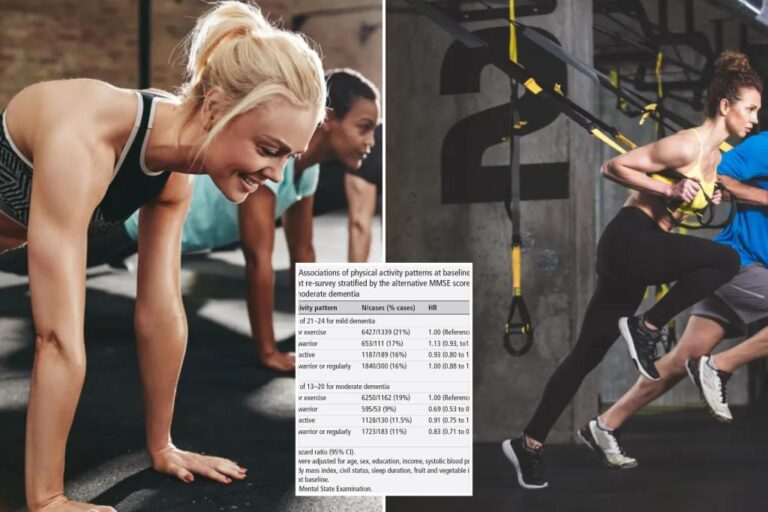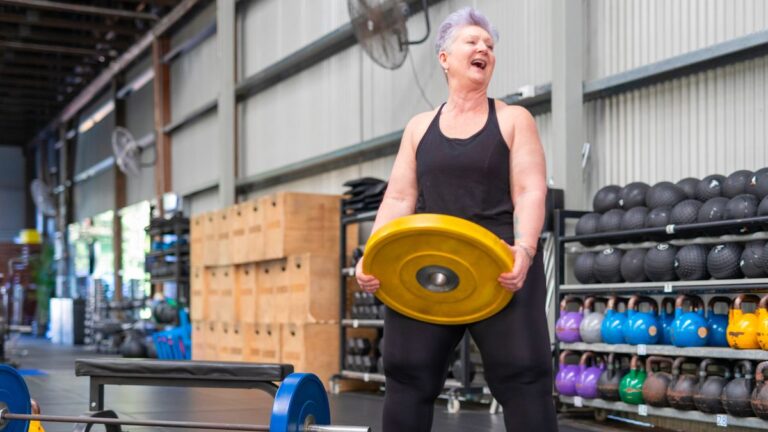Exercise for Over an Hour Weekly Aids Postpartum Depression Relief
Relief from Postpartum Depression: The Power of Exercise
Postpartum depression (PPD) is an experience that affects many mothers after giving birth. It can feel like a heavy cloud looming over what should be one of the happiest times in life. If you’ve recently joined the ranks of motherhood and find yourself in a funk, you’re certainly not alone. Did you know, however, that getting your sweat on for just over an hour a week can significantly help lift those blues? That’s right! Let’s dive into how exercise serves as a powerful ally in battling postpartum depression.
Understanding Postpartum Depression
Before we dive into the uplifting aspects of exercise, let’s take a moment to understand what postpartum depression really is. PPD isn’t simply feeling sad or overwhelmed; it’s a serious condition that can manifest in various ways. Symptoms often include lingering sadness, irritability, anxiety, difficulty concentrating, and, in some cases, trouble bonding with your baby.
Why does this happen?
Your body undergoes a whirlwind of changes after childbirth. Hormonal shifts, sleep deprivation, and the pressures of new motherhood can create a perfect storm for emotional distress. The emotional weight can feel crushing—but here’s where the good news comes in!
The Magic of Movement
Feeling Better with Exercise
What if I told you that an hour of exercise could be a gamechanger? Studies, like the one highlighted in The Guardian, suggest that engaging in physical activity for just over an hour a week can provide significant relief for women dealing with PPD. When you exercise, your body releases endorphins—those feel-good hormones that not only elevate your mood but also fight off feelings of sadness.
Let’s break this down further:
-
Endorphins: Think of these as nature’s antidepressants. They’re like tiny joy-bringing messengers, activating receptors in your brain to help reduce pain and promote a sense of well-being.
-
Routine: Establishing a routine is crucial for new mothers. When you set aside time to focus on yourself and your health, that small commitment can help foster a sense of normalcy in what can feel like chaotic times.
-
Social Interaction: Connecting with others while exercising, whether it’s joining a mom-and-baby fitness class or engaging friends for a walk, can offer social support that is incredibly beneficial during the postpartum period.
Types of Exercises That Spark Joy
Wondering what kind of exercise you should dip your toes into? Here are a few simple yet effective activities:
-
Walking: This is one of the simplest forms of exercise. Grab your baby and take a stroll around the neighborhood. Fresh air does wonders for your mood, and the rhythmic nature of walking can be soothing for both of you!
-
Yoga: Not only does yoga enhance flexibility and strength, but it also encourages relaxation and mindfulness. Postnatal yoga classes have the added benefit of meeting other mothers who understand your struggles.
-
Swimming: If you have access to a pool, swimming is a fantastic full-body workout. The water provides gentle support, which can be great if you’re still recovering from childbirth.
- Strength Training: Don’t shy away from the weights! Engaging in light strength training can help boost your confidence as you regain your physical strength. Aim for quick, 15- to 20-minute sessions—perfect for fitting into a busy schedule.
Getting Started: Tips for New Moms
Starting a new exercise routine can feel daunting. After all, your life has transformed dramatically. Here are some practical tips to help you ease into a fitness regimen:
1. Set Realistic Goals
- Start small. Aiming for just 10 minutes a day is a great way to begin. Remember, it’s not about hitting the gym for hours; it’s about establishing a habit.
2. Listen to Your Body
- Pay attention to what your body is telling you. If something feels off, don’t push yourself. It’s perfectly okay to take a step back and rest.
3. Make it Enjoyable
- Find activities you genuinely enjoy. You’re much more likely to stick with what brings you joy, whether it’s dancing in your living room or cycling around the park.
4. Incorporate Your Baby
- Many exercises can be easily modified to include your little one. Use a stroller for walks, or let your baby lie on a play mat while you do some light strength training nearby. This way, you’re engaging with them while taking care of your health.
5. Connect with Other Moms
- Consider joining a local mom’s group. Exercising with others not only keeps you motivated but also allows you to build connections with fellow mothers navigating similar paths.
Exercise Isn’t Just Physical
Let’s take a moment to acknowledge that exercise also enhances mental clarity and emotional resilience. It’s about more than just burning calories; it boosts your self-esteem and body image, which is vital during the physically and emotionally taxing postpartum stage.
Imagine your mind as a crowded room—filled with distractions, stressors, and countless worries. Exercise is like opening the windows, letting in fresh air and sunlight, clearing out that stale energy. It creates space for positive thoughts and feelings to flow back in.
Finding Balance in Your New Life
As delightful as it may sound to carve out time for exercise, the reality can feel overwhelming. Between diaper changes, feedings, and sleepless nights, finding a moment for yourself can feel tricky. The key lies in finding balance.
Here’s how:
-
Prioritize Self-Care: Your well-being is just as important as your baby’s. Set aside moments in your day to focus on self-care, whether it’s through exercise, meditation, or simply reading a book.
-
Establish a Support System: Don’t hesitate to reach out to family and friends. Having someone watch the baby while you work out—even if it’s just for half an hour—can make all the difference.
-
Be Kind to Yourself: Remember that it’s okay to have days where you may not feel up to exercising. Life as a new mom can be unpredictable, and that’s perfectly fine.
Conclusion
So there you have it! Incorporating just a bit of exercise into your week can be a powerful tool in alleviating postpartum depression. Not only does it help improve your mood, but it also provides a chance to reclaim a sense of self amid the whirlwind of motherhood.
Remember, just as a seed needs nurturing sunshine and a bit of rain to grow, you too need care and activity to flourish. If the path seems challenging, take it one step at a time. Before you know it, the vibrant sunny skies of joy and well-being will be shining on you again.
FAQs
1. How much exercise should I aim for weekly to help with postpartum depression?
- Aim for at least 1 hour of moderate exercise spread over the week.
2. Can I exercise if I had a C-section?
- Yes, but consult with your healthcare provider first. They can guide you on when it is safe to start exercising.
3. What if I don’t have time to go to the gym?
- Home-based activities like walking, yoga, or even dancing while your baby naps can be effective!
4. What if I don’t enjoy traditional exercise?
- No worries! Choose activities you enjoy—gardening, hiking, or even playing with your baby can be great ways to stay active.
5. Is it common to experience guilt about taking time for myself?
- Absolutely. Remember that self-care is vital to your well-being. Taking time for yourself helps you be a better mom in the long run.







